Fairtrade fortnight: How good is our morning brew, really?
Ahead of Fairtrade fortnight which begins on Monday, Lizzie Rivera meets the essential tea farmers in Malawi who work on the fairtrade scheme, whose livelihoods are threatened by global warming, Brexit and the rise of fashionable coffee
Your support helps us to tell the story
From reproductive rights to climate change to Big Tech, The Independent is on the ground when the story is developing. Whether it's investigating the financials of Elon Musk's pro-Trump PAC or producing our latest documentary, 'The A Word', which shines a light on the American women fighting for reproductive rights, we know how important it is to parse out the facts from the messaging.
At such a critical moment in US history, we need reporters on the ground. Your donation allows us to keep sending journalists to speak to both sides of the story.
The Independent is trusted by Americans across the entire political spectrum. And unlike many other quality news outlets, we choose not to lock Americans out of our reporting and analysis with paywalls. We believe quality journalism should be available to everyone, paid for by those who can afford it.
Your support makes all the difference.Britain is known the world over for being a nation of tea-lovers, drinking a staggering 165 million cups of tea a day. Every Brit knows that all problem solving starts with a hot, sweet cuppa. Did you know a good cup of tea can literally help set the world to rights, too?
But ‘good’ doesn’t mean made with water heated to the optimum 96C, tea leaves brewed for exactly two minutes, and served in a porcelain cup.
It means intrinsically good – made with top-quality leaves plucked by farmers who are paid a fairer wage so that they can feed their families and pay for their children to attend secondary school. It means looking for the Fairtrade label in the supermarket.
The crisis facing tea farmers and how Fairtrade helps
Tea farming is in crisis because tea sales are in decline as it becomes less fashionable with the younger coffee-shop generation. Less demand means lower prices for the farmers who typically sell at auction.
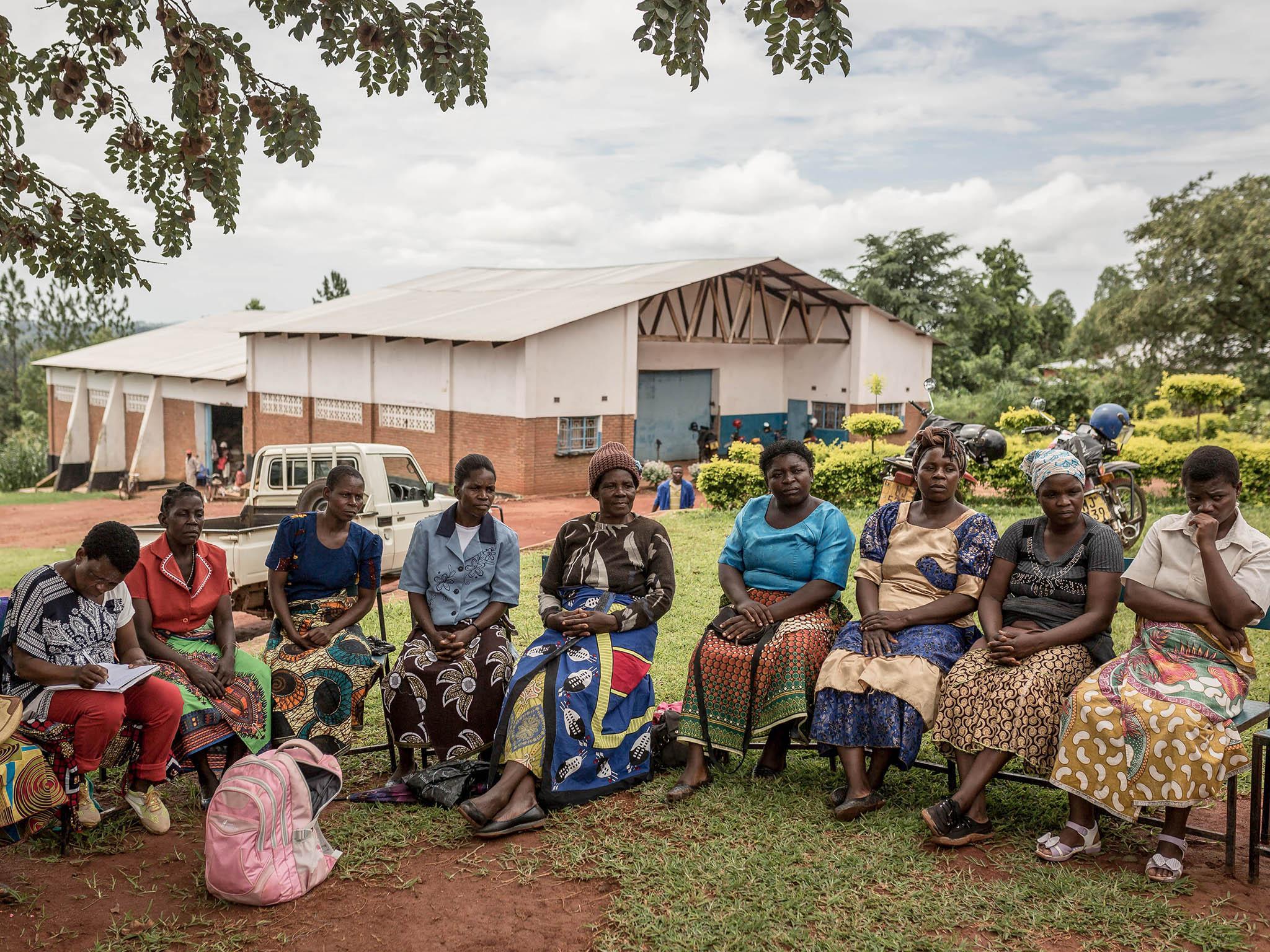
Plus, global warming and an increase in pests and disease are reducing yields by 15 per cent on average. More fertiliser is needed, and of course, the price of this rises sharply with demand, squeezing farmers even harder.
Tea is the second largest export after tobacco for Malawi, one of the poorest countries in Africa, and 90 per cent of its tea is sold to the UK. As the UK looks to renegotiate more than 50 international trade deals following Brexit, no one yet knows what this will mean for the farmers and workers – and as 75 per cent of Malawians already live below the international poverty line, they are worried it will push them to the brink.
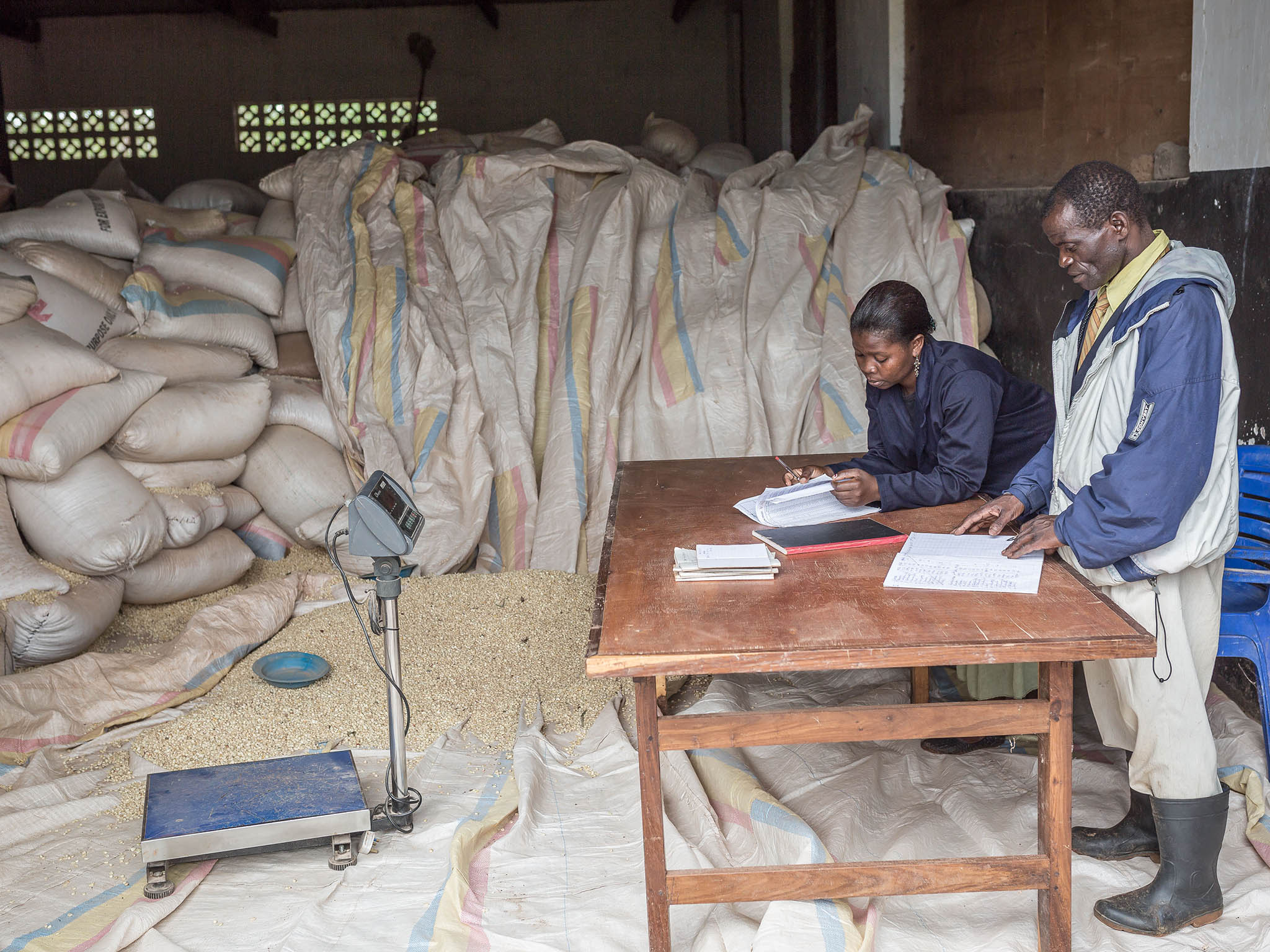
Currently, the Fairtrade market sets a minimum sale price of £1 per kilo, more than 30 per cent higher than the farmers would get at a normal, non-Fairtrade auction.
A 40p premium is paid on top of that, which goes into a separate bank account run by an association of farmers and must be used to fund projects that help develop the community.
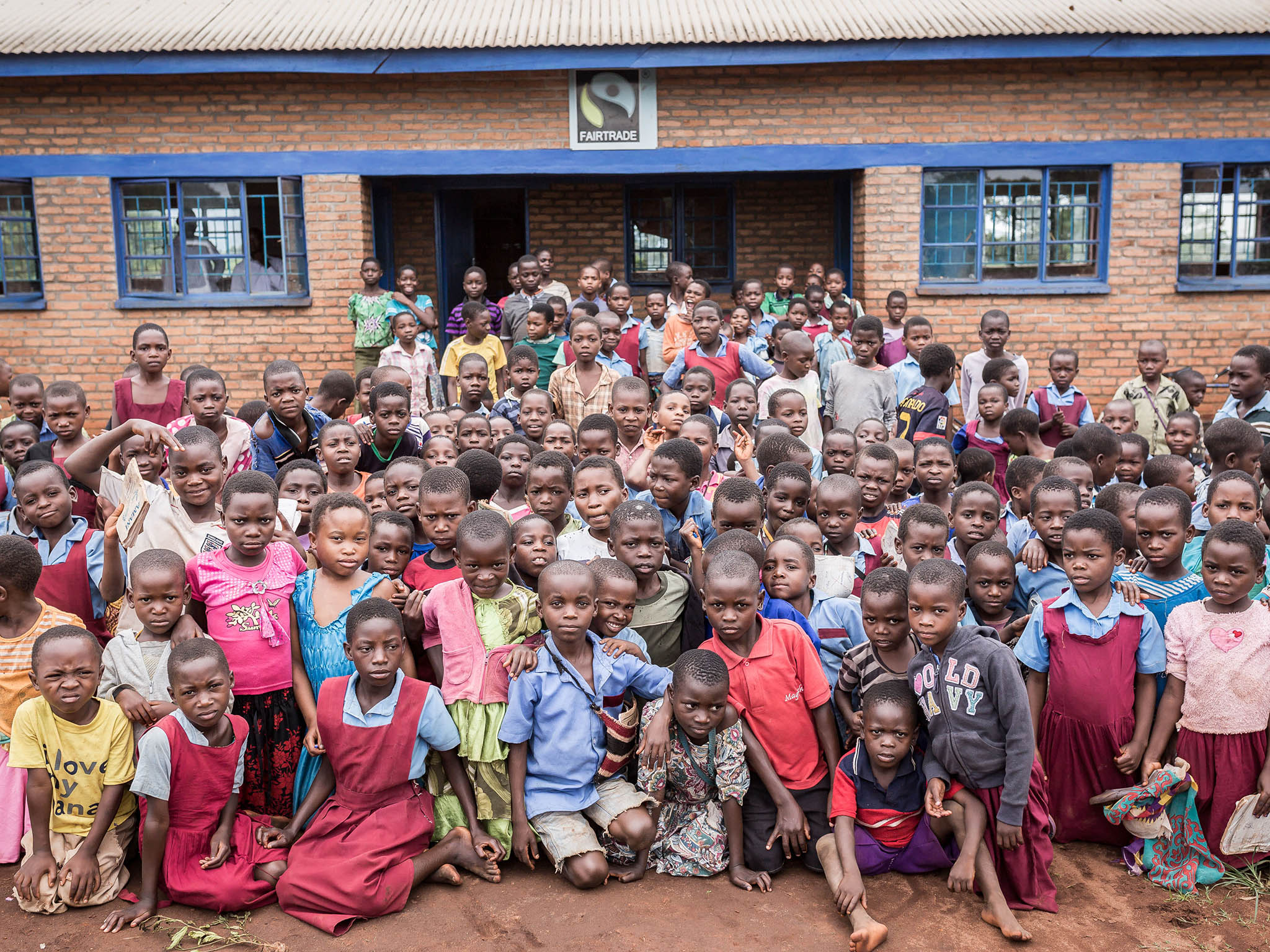
When sales are good this helps to pay for essentials such as mosquito nets and anti-malarial drugs, as well as build roads, and fund adult and children’s education.
It pays for a maize warehouse, which buys the staple when it is plentiful and cheaper in rainy season to sell to the farmers at cost during ‘zinja’ – the hungry months – because farmers struggle to buy enough food in the dry season when little tea can be harvested and sold.
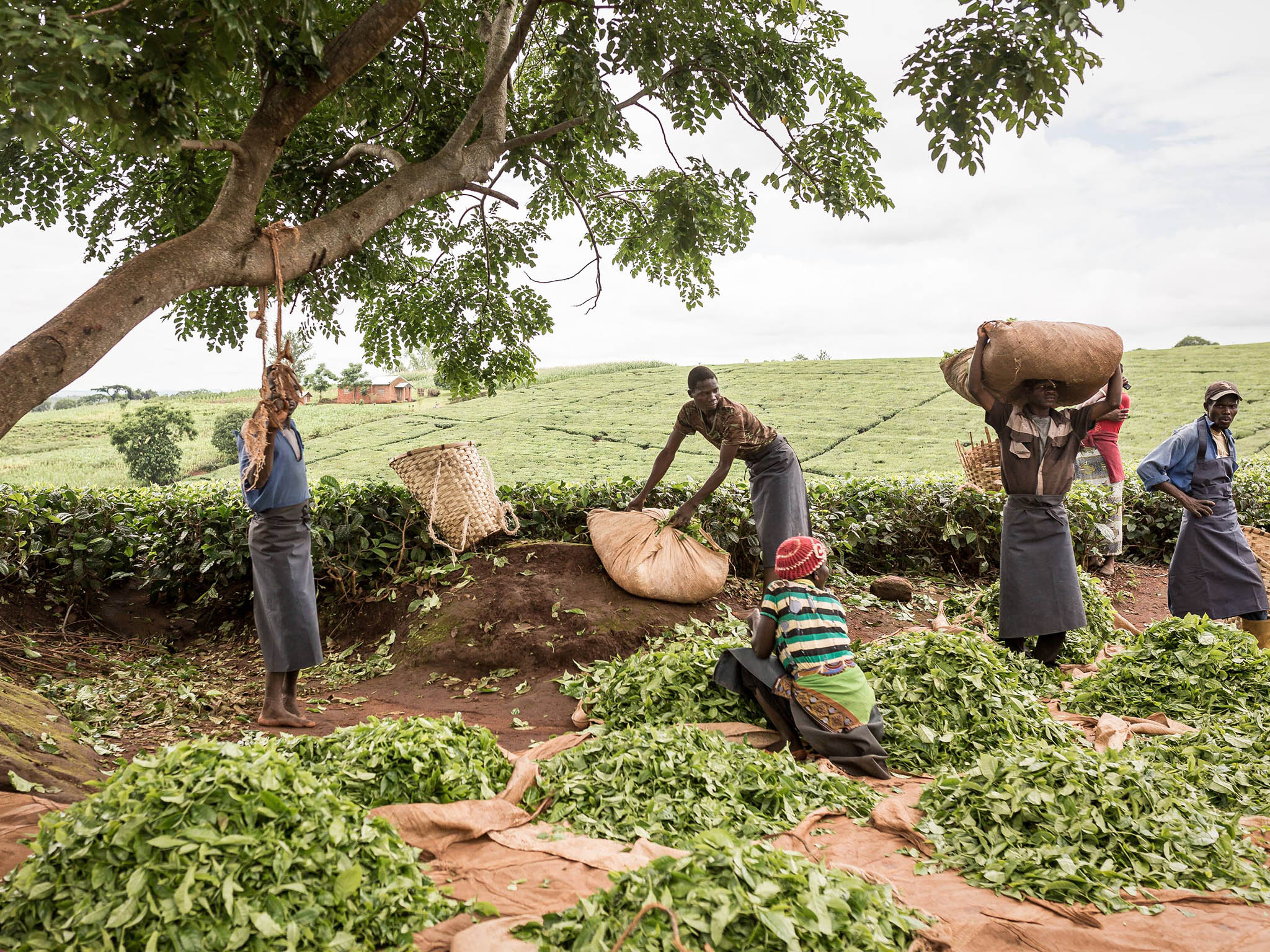
Is Fairtrade still there?
I’m in Malawi because I’m keen to see how much of a difference Fairtrade makes, first-hand.
Spending time with the farmers who are proud to show me around, I understand how Malawi has earned its reputation as the warm heart of Africa. Yet however bright the skies and optimistic the outlook, lives remain filled with hardship and poverty.

Mount Mulanje forms the glorious backdrop to Sukambize Association Trust, a 5,600-acre tea estate, about two hours from Malawi’s most populous city, Blantyre.
Global tea industry numbers:
5 million tonnes of tea are produced annually
195,000 tonnes of Fairtrade tea are produced annually
90 per cent of tea produced to Fairtrade standards is not sold for Fairtrade prices because of a lack of demand
£1 a day is the international poverty line. Three quarters of Malawians live on less than this.
£7 billion is how much the global export tea trade was worth in 2014
Although Sukambize is 100 per cent Fairtrade-certified, just over 60 per cent of their tea sells on the Fairtrade market because of a lack of demand.
At Satemwa, a privately owned tea estate with over 200 acres of tea fields in the Shire Highlands of southern Malawi, the situation is worse. Only five per cent of their tea is sold as Fairtrade – it used to be 50 per cent.
This doesn’t just affect the profits, it means that premium projects have almost ground to a halt.
“When Fairtrade started in 2007, the impact was instantly positive. Today people are asking, ‘Is Fairtrade still there?’” says general manager Fadson Mandala.
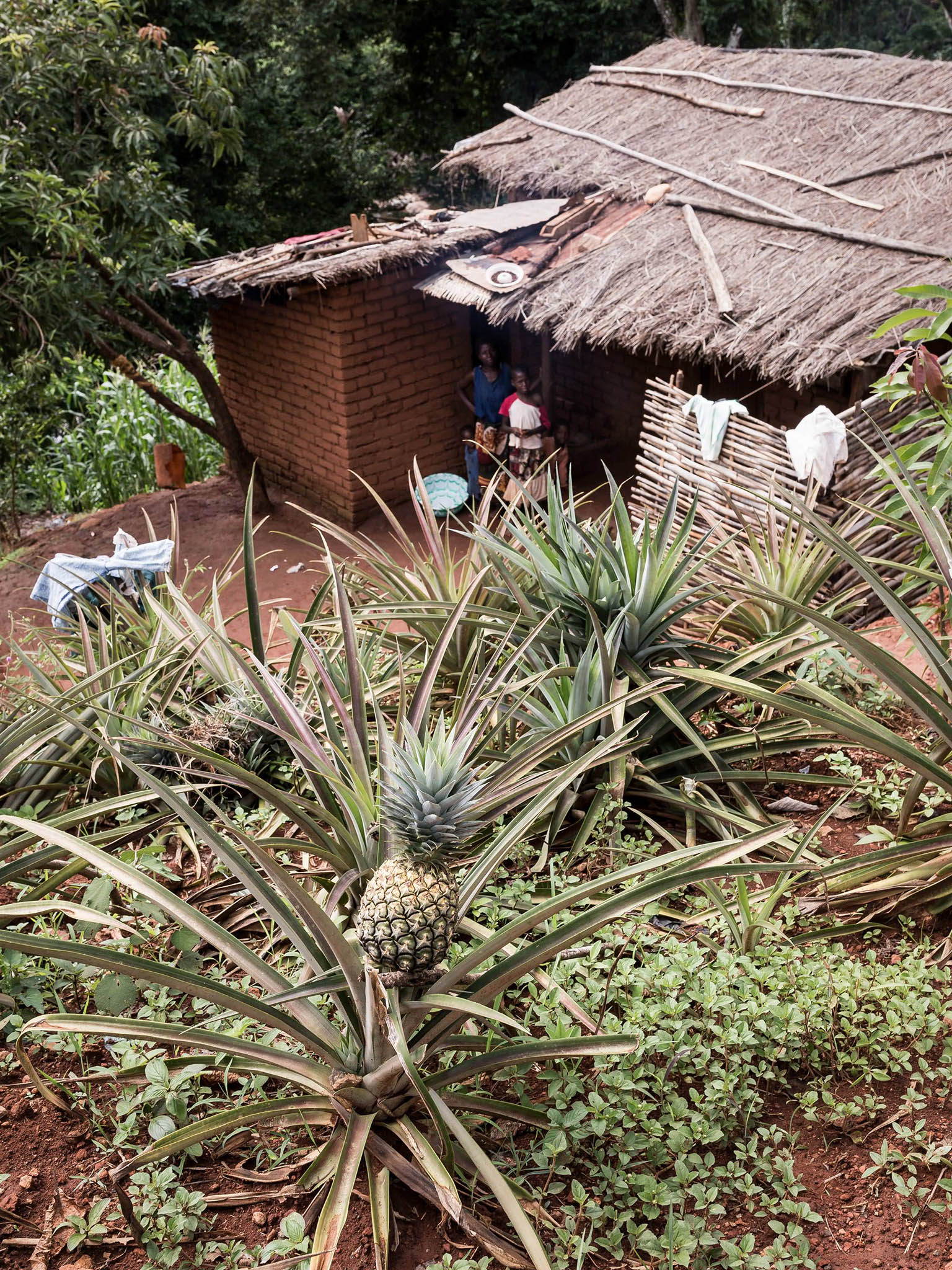
Women in tea
More than 93 per cent of tea in Malawi is produced by privately owned tea estates, but at Sukambize each of the 9,000 smallholders owns an average of 0.75 acres of land.
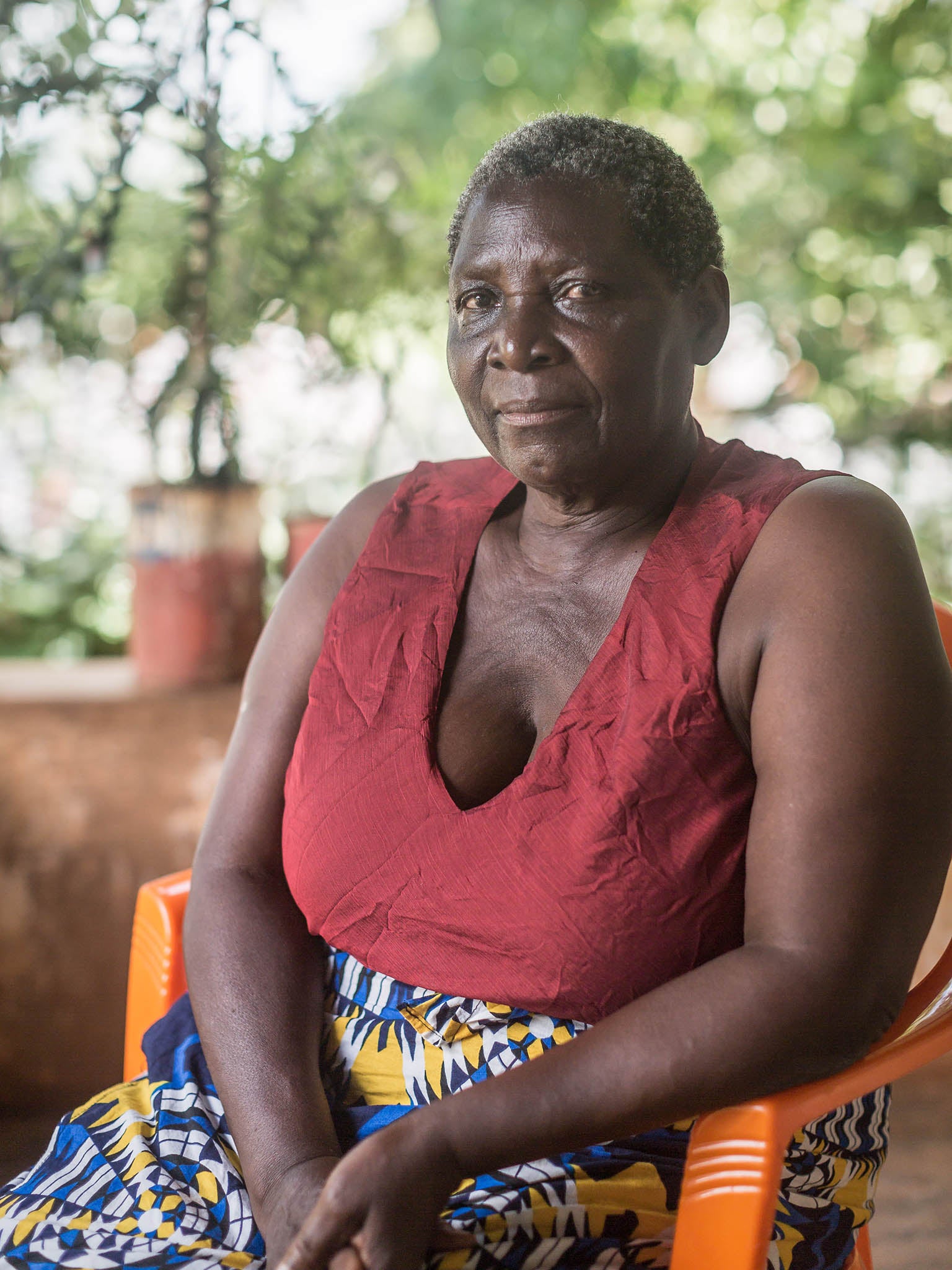
This means the farmers directly reap the profits from the leaves they pluck.
Around 70 per cent of the farmers are women, because the land in this area is passed down through females, offering independence in a country where women are still largely expected to be subservient to men.
Case study: Esme Kamwende, 70, Sukambize tea farmer, widower and mother of six
“I enjoy tea farming because it’s my field and I can manage it how I want,” says 30-year-old farmer and mother of three, Mary Linyalo.
The importance of the sisterhood is clear. Mary explains: “The fields are where we can share knowledge as women. The elder women educate us on how to look after the children and our husbands.”
Thanks to Fairtrade a maternity clinic has been built to save women from travelling 40km to the nearest hospital, or, dangerously, giving birth at home, while other developments include a 35km pipeline to give villages a fresh water tap – which is especially helpful to women, who’s role it is to collect the water for the family.
However, although the vast majority of farmers at Sukambize are female, the top administrative positions are held by men.
I also don’t meet any women who seem to have any say about how things are run at Satemwa – but a “gender committee” made up of women has been set up to look at issues concerning female workers.
Here, there is no obvious sense of camaraderie among the pickers who pluck in silence, for a minimum wage of £1.30 a day – plus a 3p per kilo bonus for anything plucked above the 53kgs required for an eight-hour shift.
Nevertheless, Mandala says there are hundreds of applicants for every vacancy because half of Malawians living in the area are unemployed and the estate has a reputation as a good place to work.
Since Fairtrade certification, the farmers have access to field toilets and maternity pay has increased from eight to 12 weeks.
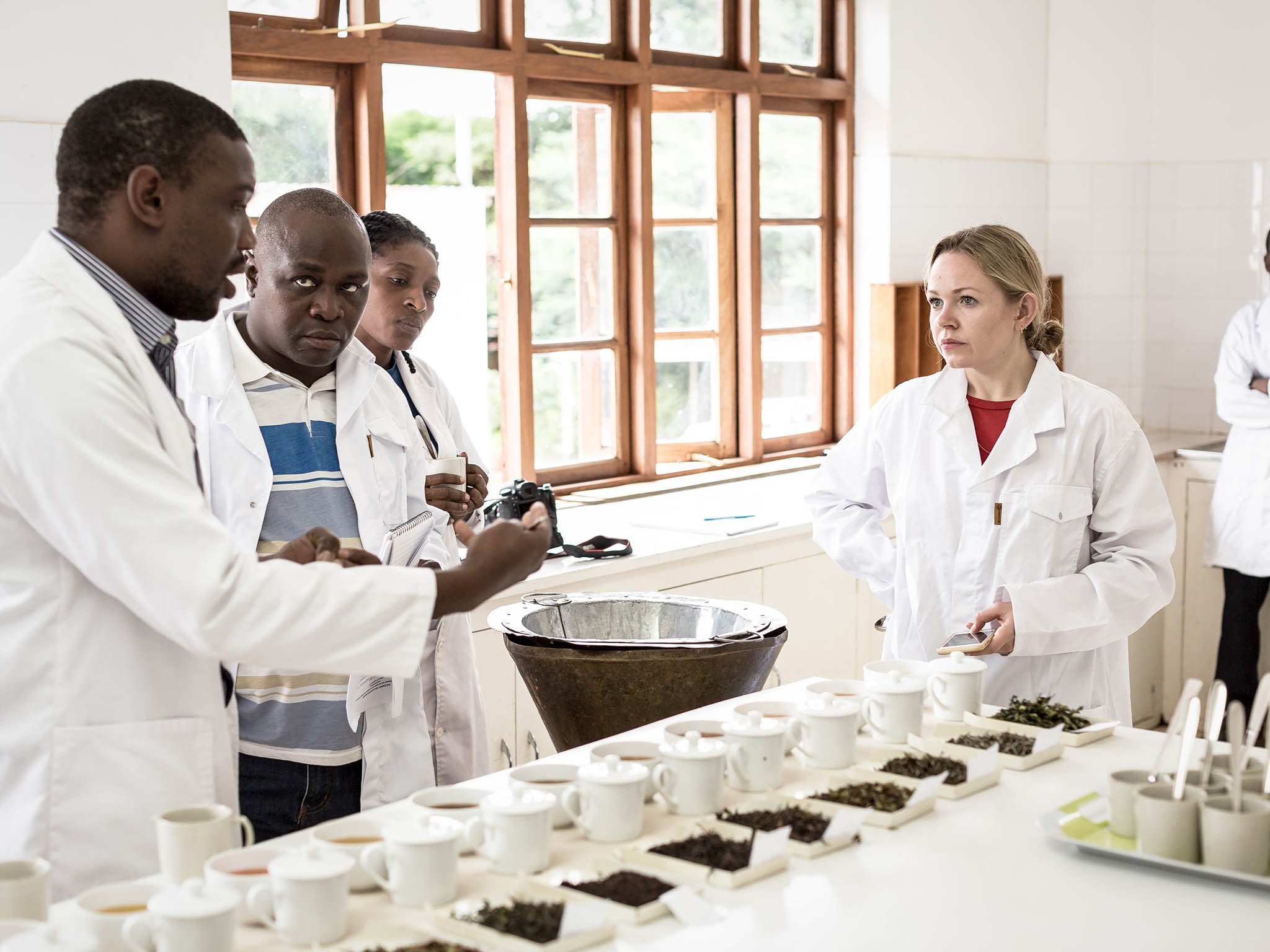
The promise of a better future
The management at Satemwa are trying to diversify their revenue streams by making specialty teas and coffee and a more positive atmosphere in the factory is tangible.
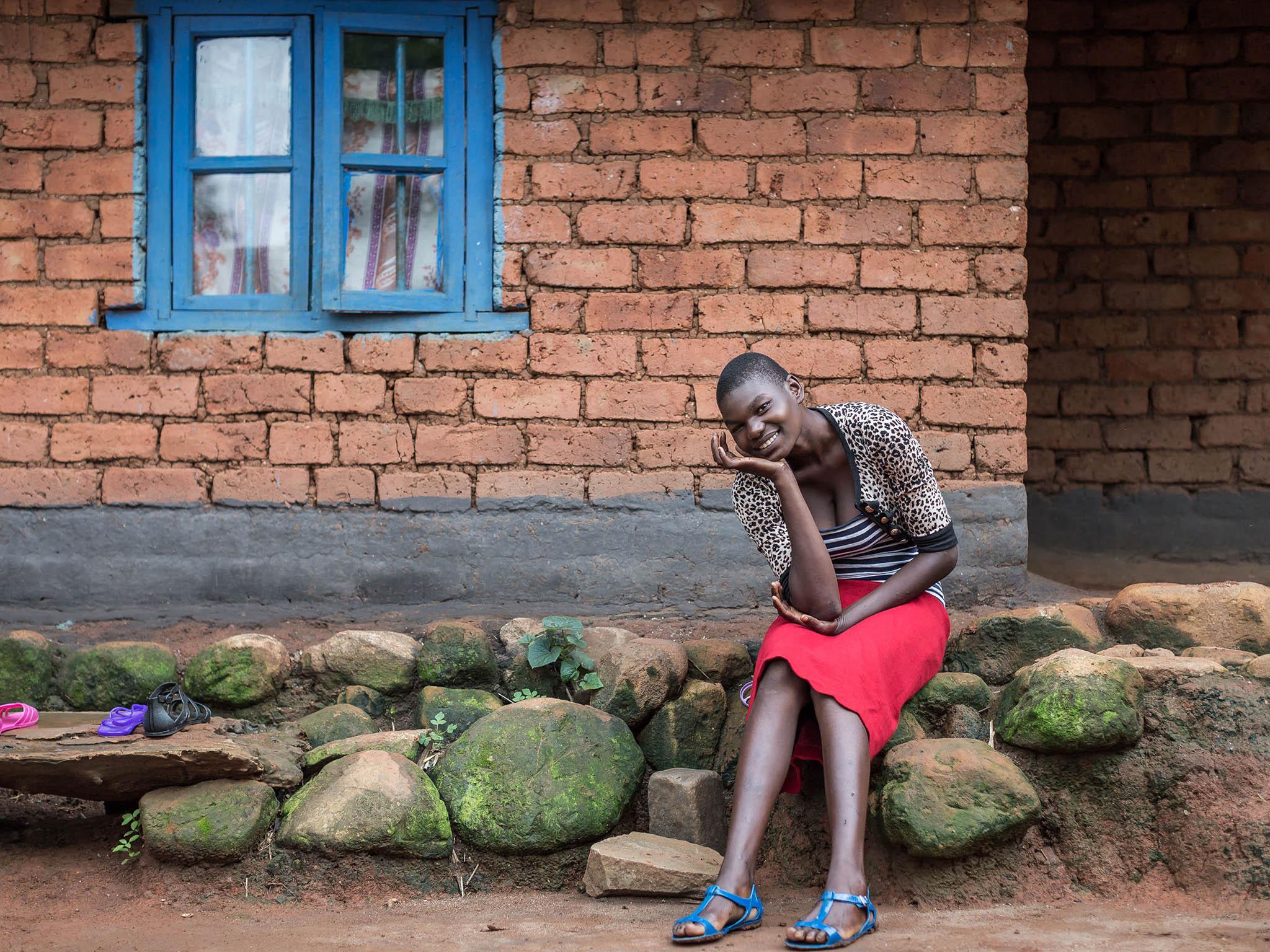
This is where Rebecca Tchova, 21, hopes to work. A shy, single mother to nine-month-old Precious, her goal of going to university to study electrical engineering has been dashed because no funds are available. She now works all day in the withering section of the tea factory.
“My job is a little difficult because it’s hard, manual work,“ says Rebecca. “I wake up at 4am, sweep, wash and look after the baby. Then I leave for work at 5am to start work at 6am.”
Rebecca doesn’t earn enough to pay for everything she needs. She needs about £55 a month to make ends meet but she currently only earns £40.
She’s obviously still trying to come to terms with the path her life has taken. As I leave Rebecca’s small home, on a muddy ridge in a valley above a river she has to cross on foot, the fragility of the workers' lives hits home.
I ask Aubrey Nyasulu, who works for Fairtrade in Africa, why there is such an emphasis on education if there is no way for children to progress.
“If they don't go to secondary school, then there is no hope for them,” he says.
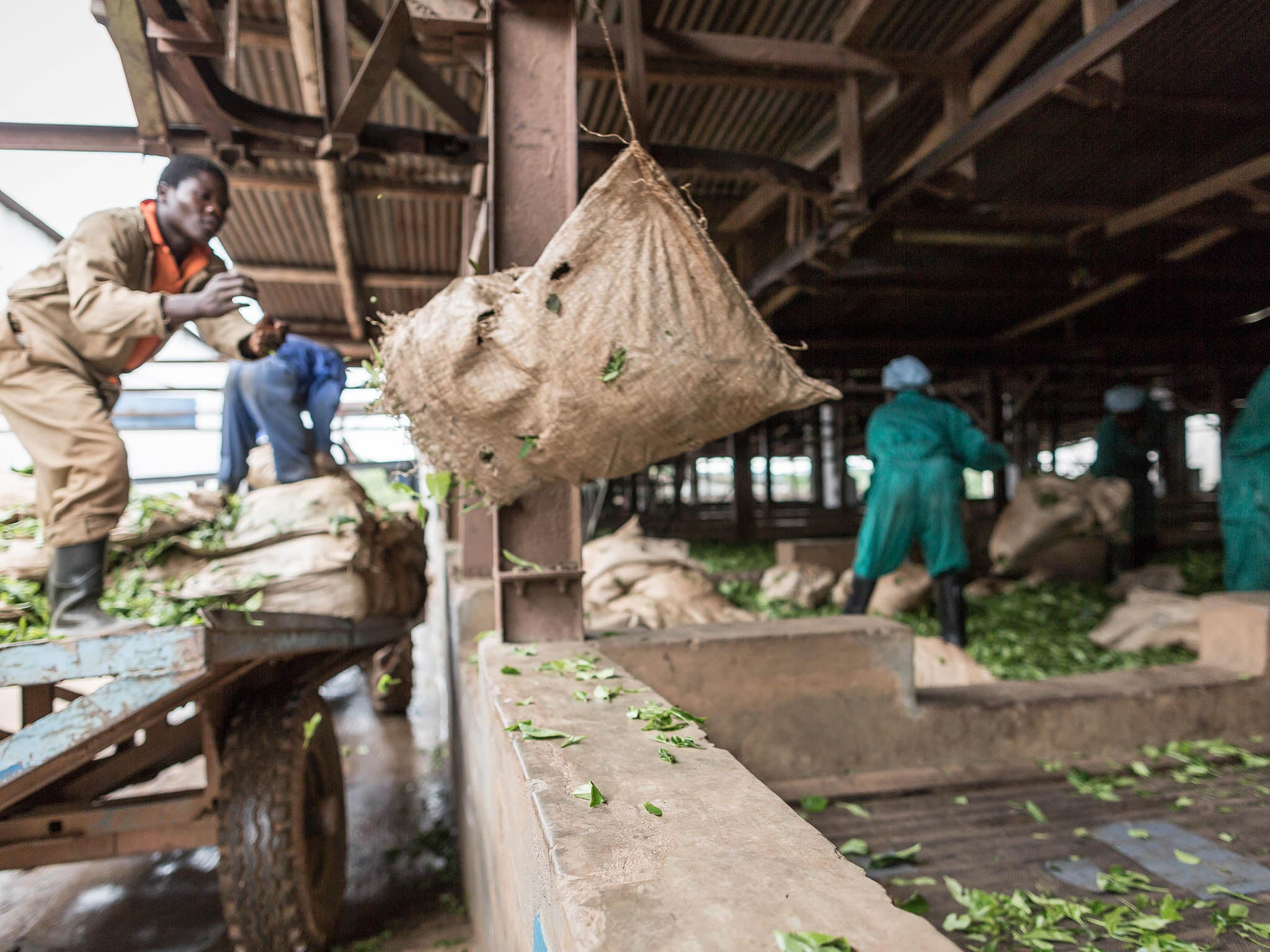
Education is not only important to help break the cycle of poverty, but gives the farmers the tools to understand how the tea industry operates, how Fairtrade works and the opportunity to help decide how the funds are distributed.
Right now, the main concern is making sure the funds keep coming in. Fairtrade is the only system that offers these farmers the promise of a better future.
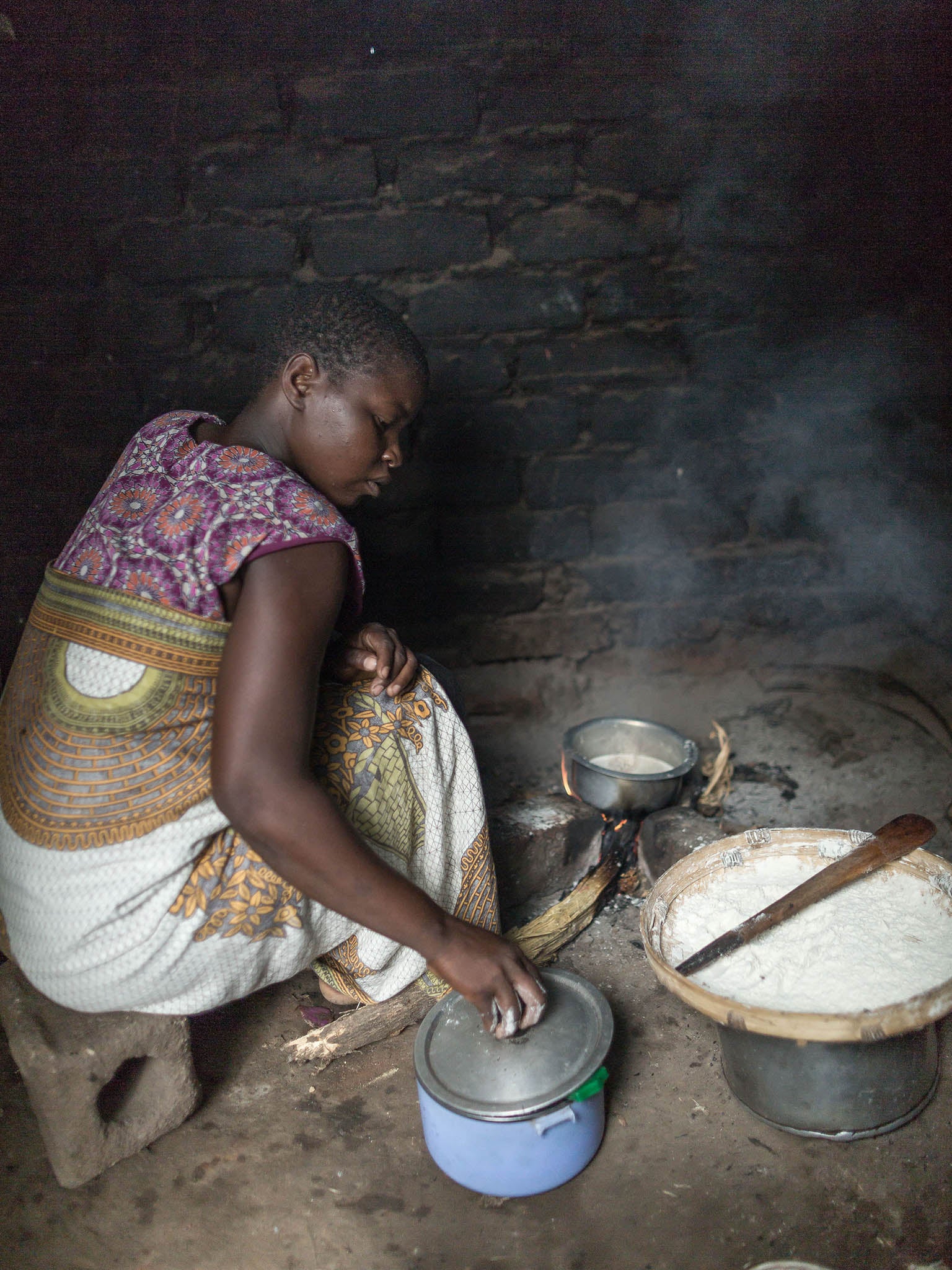
It’s not perfect. Exporting tea is a global industry worth £7 billion and the majority of the 13 million farmers worldwide still earn barely enough to survive. But it’s a lot better than having to sell your tea to a handful of multinational companies at rock-bottom prices, which is the only alternative.
All Brits know a good cup of tea can solve almost any problem. And Fairtrade branded tea is about as good as tea gets.
Lizzie Rivera is the author of ethical lifestyle website bicbim.co.uk
Recipes
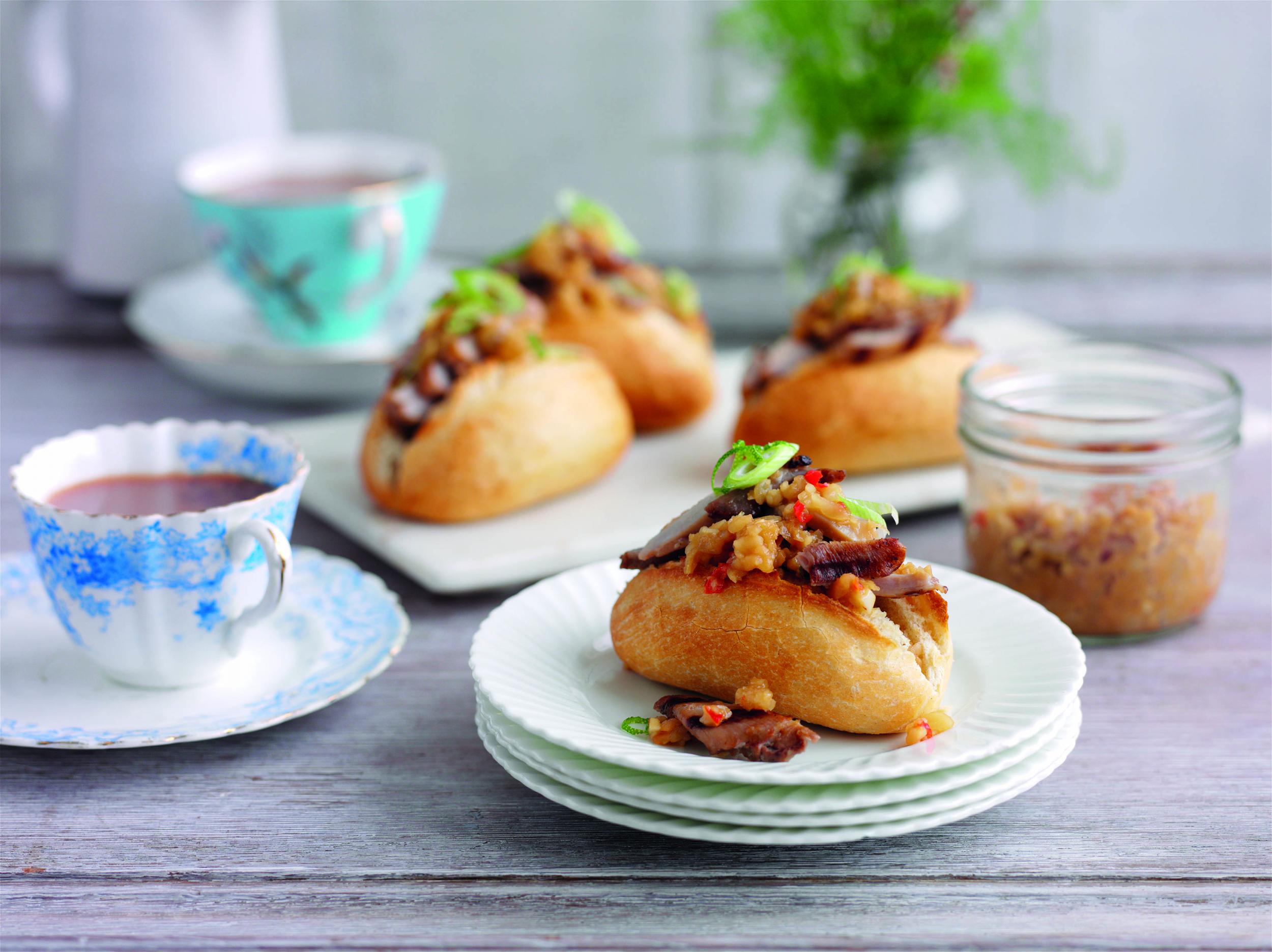
Rosie Birkett: Fairtrade smoky, tea-brined chicken in crusty rolls with warm peanut sauce
The cook, food journalist and author of ‘A Lot On Her Plate’ shares her tasty savoury afternoon tea recipe for Fairtrade Smoky, Tea-Brined Chicken with Warm Peanut Sauce.
2 organic chicken thighs, deboned and flattened
100g cooked organic, Fairtrade brown basmati rice, to serve
1 bag of spinach, washed and wilted with a little bit of olive oil
For the tea brine
3-4 tbsp. smoked tea (use Fairtrade’s Lapsang Souchong)
500-600ml boiling water
30g salt
For the peanut sauce
200g roasted, unsalted Fairtrade peanuts, blitzed until chunky in a food processor
1.5 tbsp coconut oil
1 onion, finely chopped
2 cloves garlic, finely chopped
1 scotch bonnet chili, deseeded and finely chopped
3 cm ginger, finely chopped
2 tsp honey
150ml water
1 tbsp soy sauce
½ tbsp fish sauce
lime juice, to taste
First make the tea brine by placing the tea in a bowl or jug along with the salt and pouring over the water. Stir and allow to infuse for a few minutes, then strain it into another bowl or Tupperware and allow to cool completely. Once cooled, submerge the chicken in the brine and keep covered in the fridge for 2-4 hours.
To make the peanut sauce, melt the coconut oil in a non-stick frying pan. Add the onion and a pinch of salt and cook down for 8 minutes or so, until soft. Add the garlic, chili and ginger and cook for another couple of minutes, until aromatic. Then add the peanuts, water, honey, sauce, fish sauce and a couple of tablespoons of the tea brine and cook, stirring, for about 5 minutes or until you have a rich, creamy sauce. Taste it for seasoning and balance with a bit more honey or some lime juice if need be. Keep in the pan but take it off the heat.
Heat a griddle pan over a medium to high heat and scatter with a little bit of sea salt. Remove the chicken from the brine and allow the excess to drip off. Place the chicken into the pan and cook, turning, for about 5 minutes on each side, until the chicken is cooked through and slightly charred on the outside. Rest for a couple of minutes and serve with the brown rice, wilted spinach and peanut sauce.
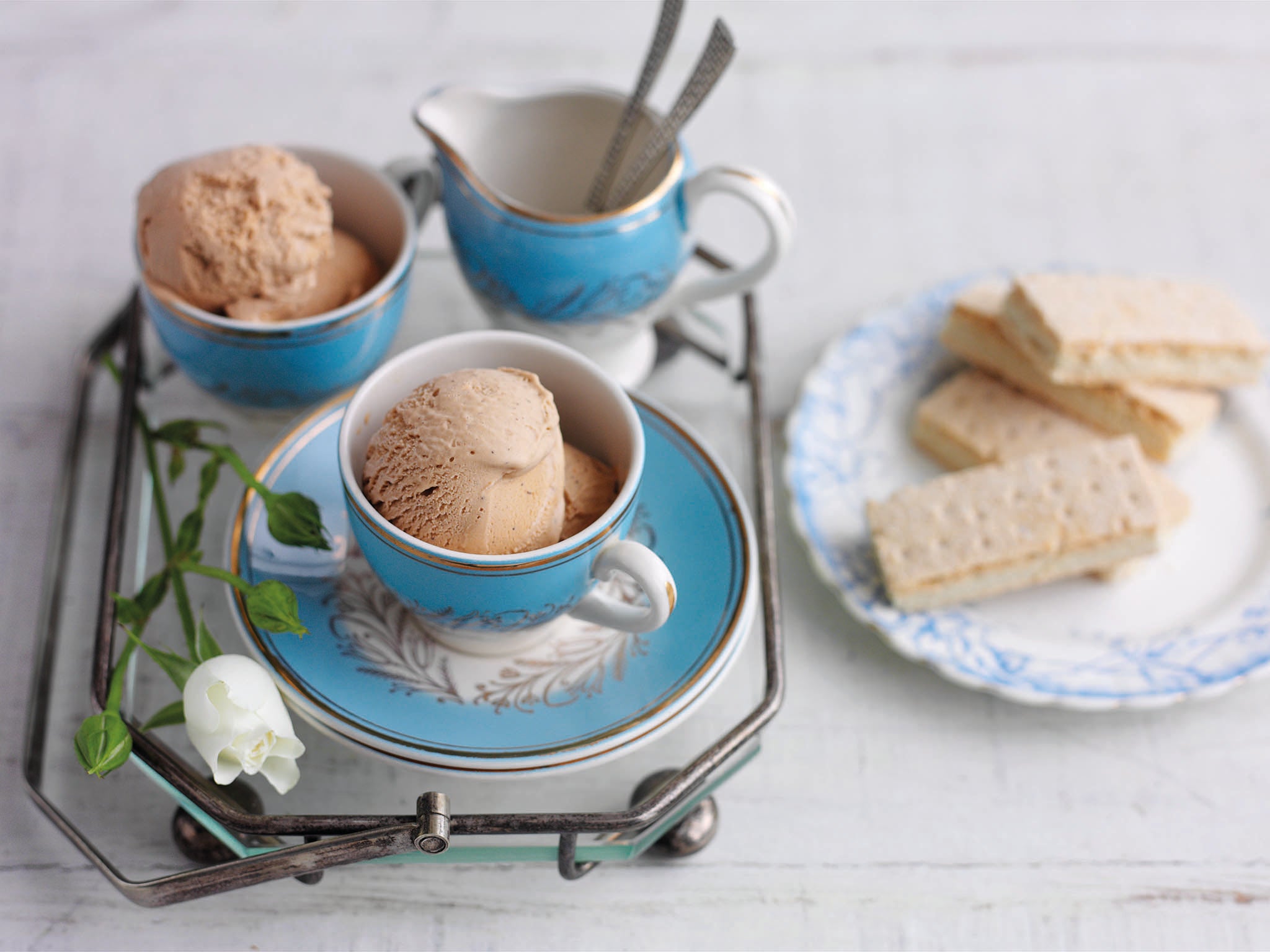
Tess Ward: Fairtrade earl grey ice cream with biscuits
The established Le Cordon Bleu trained chef, food writer, author and food consultant shares her delicious recipe for Fairtrade Earl Grey Ice Cream – a perfect treat!
Makes approx. 1 litre
230ml double cream
230ml whole milk
230g crème fraiche
150g Fairtrade caster sugar
30g loose leaf Fairtrade Earl Grey tea
½ lemon,sested
½ teaspoon fine sea salt
6 large egg yolks
Steep the tea and zest in the cream and milk. Combine the cream, milk, and tea saucepan. Place over medium-high heat and just bring to a near simmer. The mixture should be steaming, but no bubbles should be breaking on top, or the cream can break. Turn off the heat, and let the tea steep in the hot liquid about 30 minutes.
Remove the tea by straining the mixture through a fine-mesh sieve and into a bowl. Clean out and dry the saucepan, and pour the strained cream mixture into it. Gently whisk in the sugar and egg yolks; then place the pan over medium heat. Stir constantly, until the mixture thickens in to a custard and just coats the back of a spoon.
Immediately strain the mixture into a large bowl, to get any remaining impurities and then cover flush with plastic wrap to prevent a skin from forming. Let the mixture come to room temperature; then chill completely, at least a few hours. Pour the chilled base into your ice cream maker, and churn according to the manufacturer’s instructions. The ice cream will nearly double in volume as it churns so be sure to leave spare room at the top.
Immediately after churning, the ice cream will still be rather soft, so I typically wrap the bin tightly with plastic wrap and/or foil and place it in the freezer for another 2 to 3 hours before serving. Scoop the ice cream into bows and serve with chocolate digestive or tea biscuit.
Fairtrade fortnight: Monday 27 February - Sunday 12 March

Join our commenting forum
Join thought-provoking conversations, follow other Independent readers and see their replies
Comments